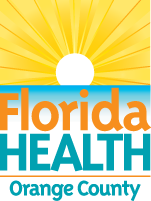PREVENT HEAT RELATED INJURIES
May 27, 2016
Temperatures are starting to rise in Central Florida and now is the time to prepare to prevent heat related injuries that can occur while enjoying the summer months. The Florida Department of Health in Orange County urges residents to be aware of the signs and symptoms of heat exhaustion and heat stroke. Among the most susceptible to heat exhaustion and heat stroke are children, the elderly, people with underlying medical conditions, and people working or exercising in hot weather.
“Families should be cautious when enjoying summer activities, making sure the children stay hydrated while outdoors and never leave children or pets alone in a car. Children’s body temperature heats up three to five times faster than an adults putting them at a higher risk of heatstroke or serious injury. We can prevent tragedies this summer,” said Dr. Kevin Sherin, director of the Florida Department of Health in Orange County.
Symptoms of heat exhaustion include heavy sweating, paleness, muscle cramps, tiredness, weakness, dizziness, headache, nausea or vomiting, and fainting. Symptoms of heat stroke include high body temperature above 103ºF, red hot, and dry skin (no sweating), rapid and strong pulse, throbbing headache, dizziness, nausea, confusion and possible unconsciousness.
Heatstroke is the leading cause of non-crash, vehicle-related deaths for children. On average, every 8 days a child dies from heatstroke in a vehicle. Babies and young kids can sometimes sleep so peacefully that parents can forget they are even there. It can also be tempting to leave a baby alone in a car while running quickly into the store. The number of deaths from heatstroke can be reduced by remembering to ACT:
A: Avoid heatstroke-related injury and death by never leaving your child alone in a car, not even for a minute. And make sure to keep your car locked when you’re not in it so kids don’t get in on their own.
C: Create reminders by putting something in the back of your car next to your child such as a briefcase, a purse or a cell phone that is needed at your final destination. This is especially important if you’re not following your normal routine.
T: Take action. If you see a child alone in a car, call 911. Emergency personnel want you to call. They are trained to respond to these situations. One call could save a life
Other important heat exhaustion/heat stroke prevention tips for everyone are:
• Drink lots of water
• Drink cool, non-alcoholic beverages
• Get lots of rest
• Take a cool shower or bath
• Seek an air-conditioned location when possible
• Wear lightweight and light colored clothing
• Do not engage in strenuous activities
Since 1998, 670 children across the United States have died from heatstroke while unattended in cars. Additional prevention information can be found at www.safekids.org/heatstroke, and statistics on child heatstroke deaths can be found at www.ggweather.com/heat.
For more information on health related illness visit https://www.cdc.gov/extremeheat/ .





Connect with DOH